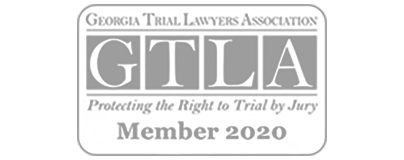Home | Glossary of Personal Injury Terms | Nerve Damage
Nerve Damage
Nerves are essential components of the human body, facilitating a wide range of activities, from the simplest movements to complex interactions with others. When these vital structures are compromised, it can lead to significant disruptions in everyday life. If you have experienced nerve damage due to an accident, engage a skilled personal injury attorney to navigate the complexities of your situation.
The Function of Nerves in the Human Body
Every individual possesses a comprehensive network of nerves, depicted in anatomical illustrations as slender, branching filaments coursing throughout the body. These nerves fall into three primary categories:
- Motor Nerves. Responsible for the voluntary movements of muscles.
- Sensory Nerves. Tasked with the processing sensory information, including touch, temperature, and pain.
- Autonomic Nerves. Controlling involuntary functions such as heart rate and digestion.
Nerves fall into two principal groups that emanate from the central nervous system:
- Cranial Nerves. These nerves branch out from the brain, serving the head, neck, and face with both motor and sensory functions.
- Spinal Nerves. Originating from the spinal cord, these nerves also provide motor and sensory capabilities.
Nerve cells, known as neurons, concentrate in the brain and spinal cord. They act as the body’s communication network. The nervous system contains two primary components:
- Central Nervous System (CNS). Comprising the brain and spinal cord.
- Peripheral Nervous System (PNS). A vast array of nerves that transmit signals to and from different body regions.
Nerves are ubiquitous, found in areas including:
- Face
- Extremities
- Chest
- Abdomen
- Pelvic region
- Legs
Given their critical role in bodily functions, damage to nerves can severely impact an individual’s quality of life.
Causes of Nerve Damage
Nerve injuries can stem from various sources, leading to noticeable changes in bodily functions and overall health. Possible causes include:
- Physical trauma
- Repetitive stress
- Infections
- Medical conditions such as diabetes
- Nutritional deficiencies
Symptoms of Nerve Damage
The manifestation of nerve damage can vary widely based on the affected nerves and the injury’s nature. Common symptoms associated with different types of nerve damage include:
Motor Nerve Damage
- Weakness in muscles
- Muscle wasting
- Cramps and spasms
- Impaired coordination
- Paralysis in severe cases
Sensory Nerve Damage
- Tingling or “pins and needles” sensations
- Numbness
- Burning or sharp pain
- Loss of sensation
- Difficulty maintaining balance
Autonomic Nerve Damage
- Fluctuations in blood pressure
- Dizziness or fainting spells
- Rapid heart rate
If you experience any new or unexplained symptoms, it is imperative to seek medical attention. A healthcare professional can conduct a comprehensive evaluation and recommend appropriate interventions.
Treatment Options for Nerve Damage
Depending on the extent and location of the nerve injury, various treatment options may be available.
- Medications. To alleviate pain or manage underlying conditions.
- Physical Therapy. To improve strength and mobility.
- Surgery. In some cases, surgical may be required to repair damaged nerves.
Supportive devices such as braces or splints may help facilitate recovery for certain injuries.
However, it is important to note that severe nerve damage may result in limited treatment options and significant long-term consequences.
Long-Term Effects of Nerve Damage
Persistent nerve damage can lead to enduring challenges. Some potential long-term effects include:
- Chronic pain or discomfort
- Permanent sensory loss
- Difficulty with bladder or bowel control
- Impediments to sexual function
- Respiratory complications
In extreme cases, amputation may become necessary due to irreparable nerve damage.
Moreover, the emotional and psychological repercussions of living with nerve damage can be profound, affecting overall well-being.
Legal Considerations for Nerve Damage Caused By Negligence
Nerve damage can arise from a range of circumstances, including natural causes such as nutritional deficiencies or as a direct result of negligence in accidents. When another party’s recklessness leads to your injury, you may have grounds for legal recourse.
Common incidents that can result in nerve damage include:
- Vehicle collisions (cars, motorcycles, trucks)
- Pedestrian accidents
- Workplace mishaps
- Medical malpractice
- Slip and fall incidents
If you have sustained nerve damage due to someone else’s negligence, pursuing a personal injury claim may allow you to seek accountability and compensation for your losses.
Potential Compensation in Nerve Damage Cases
Victims of nerve damage may be eligible for various forms of compensation, including:
- Medical expenses (past and future)
- Lost wages and diminished earning capacity
- Pain and suffering
- Emotional distress
- Loss of enjoyment of life
- Loss of companionship
Consulting with a personal injury attorney can help you understand the full extent of your rights and the potential value of your case.

GEORGIA PERSONAL INJURY LAWYER NEAR ME
Don’t Let Nerve Damage Disrupt Your Daily Life
Nerve damage can significantly disrupt your daily life and financial stability. If you have experienced such an injury due to another’s negligence, reaching out to a personal injury lawyer at (770) 771-5130 can be a crucial step toward recovery.
For legal assistance and a free consultation regarding your case, consider contacting a qualified attorney who specializes in personal injury claims. The Jewkes Firm can help you navigate the complexities of your situation and advocate for the compensation you deserve.
GET A FREE CASE REVIEW
PRACTICE AREAS
Frequently Asked Questions?
Do I need a personal injury attorney?
The Jewkes Firm is well-versed in effectively challenging major insurance companies on your behalf to secure the highest settlement permissible by law. Our primary objective is to ensure your optimal recovery. It is only after this point that we assess the worth of your case.
What is the deadline for filing an injury case in Georgia?
The timeframe for filing an injury case, also known as the statute of limitations, can vary significantly. As per OCGA §9-3-33, you are granted a two-year period from the date of your injuries or the passing of a family member to initiate your personal injury claim.
What is the cost to hire a personal injury attorney?
There is no upfront cost associated with hiring a personal injury lawyer. Our fees are based on a percentage of your settlement, meaning you only pay if we successfully recover compensation. Our top priority is ensuring your well-being and helping you return to your normal life.
What damages can you recover from a personal injury?
A personal injury lawyer aims to establish negligence and seek restitution for the harm caused by the liable party. Additionally, you may be entitled to compensation for funeral costs, medical expenses, and income lost if you are a family member of someone who died as a result of an injury.
Free Case Evaluation











